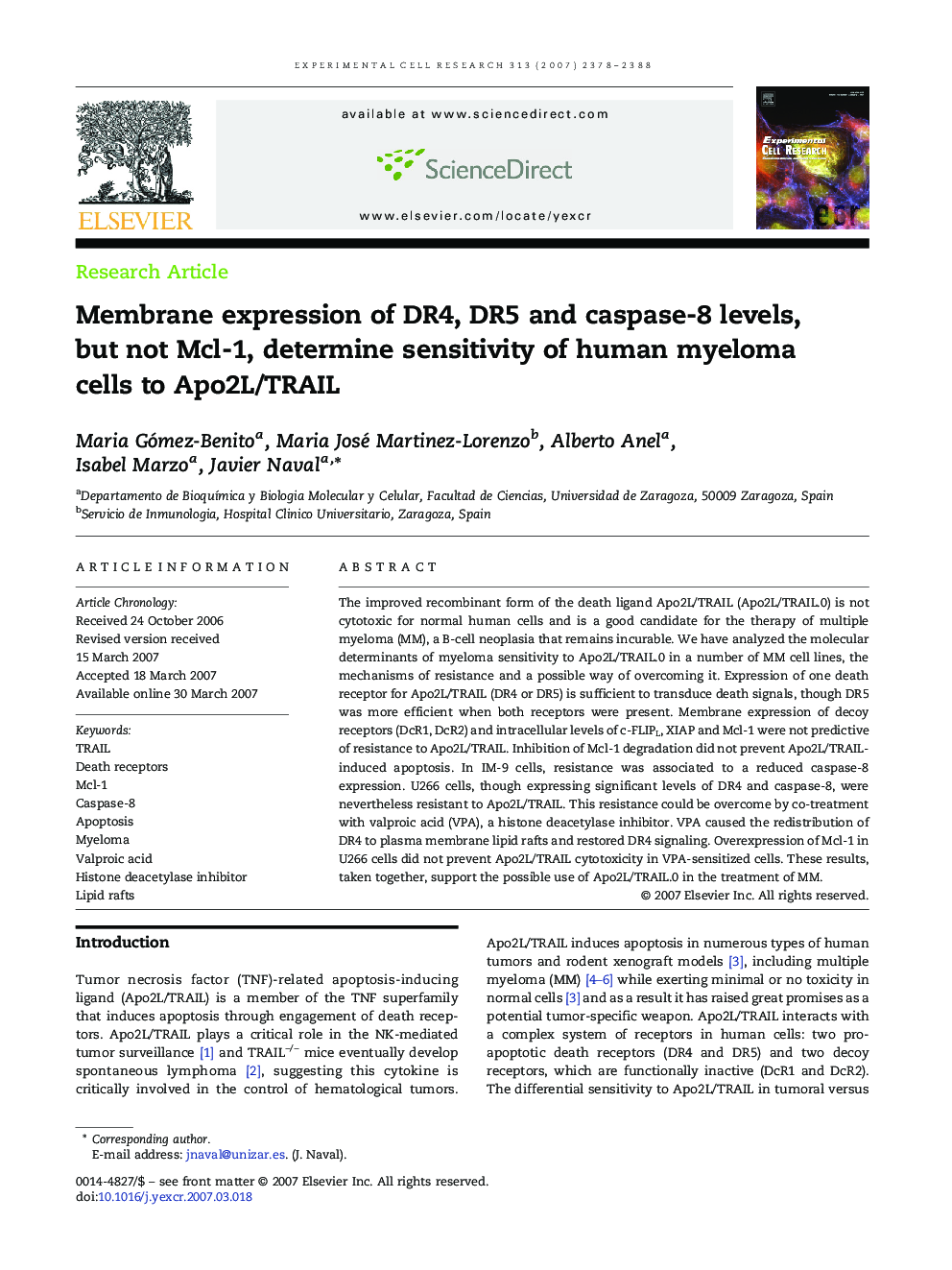| Article ID | Journal | Published Year | Pages | File Type |
|---|---|---|---|---|
| 2131827 | Experimental Cell Research | 2007 | 11 Pages |
The improved recombinant form of the death ligand Apo2L/TRAIL (Apo2L/TRAIL.0) is not cytotoxic for normal human cells and is a good candidate for the therapy of multiple myeloma (MM), a B-cell neoplasia that remains incurable. We have analyzed the molecular determinants of myeloma sensitivity to Apo2L/TRAIL.0 in a number of MM cell lines, the mechanisms of resistance and a possible way of overcoming it. Expression of one death receptor for Apo2L/TRAIL (DR4 or DR5) is sufficient to transduce death signals, though DR5 was more efficient when both receptors were present. Membrane expression of decoy receptors (DcR1, DcR2) and intracellular levels of c-FLIPL, XIAP and Mcl-1 were not predictive of resistance to Apo2L/TRAIL. Inhibition of Mcl-1 degradation did not prevent Apo2L/TRAIL-induced apoptosis. In IM-9 cells, resistance was associated to a reduced caspase-8 expression. U266 cells, though expressing significant levels of DR4 and caspase-8, were nevertheless resistant to Apo2L/TRAIL. This resistance could be overcome by co-treatment with valproic acid (VPA), a histone deacetylase inhibitor. VPA caused the redistribution of DR4 to plasma membrane lipid rafts and restored DR4 signaling. Overexpression of Mcl-1 in U266 cells did not prevent Apo2L/TRAIL cytotoxicity in VPA-sensitized cells. These results, taken together, support the possible use of Apo2L/TRAIL.0 in the treatment of MM.
